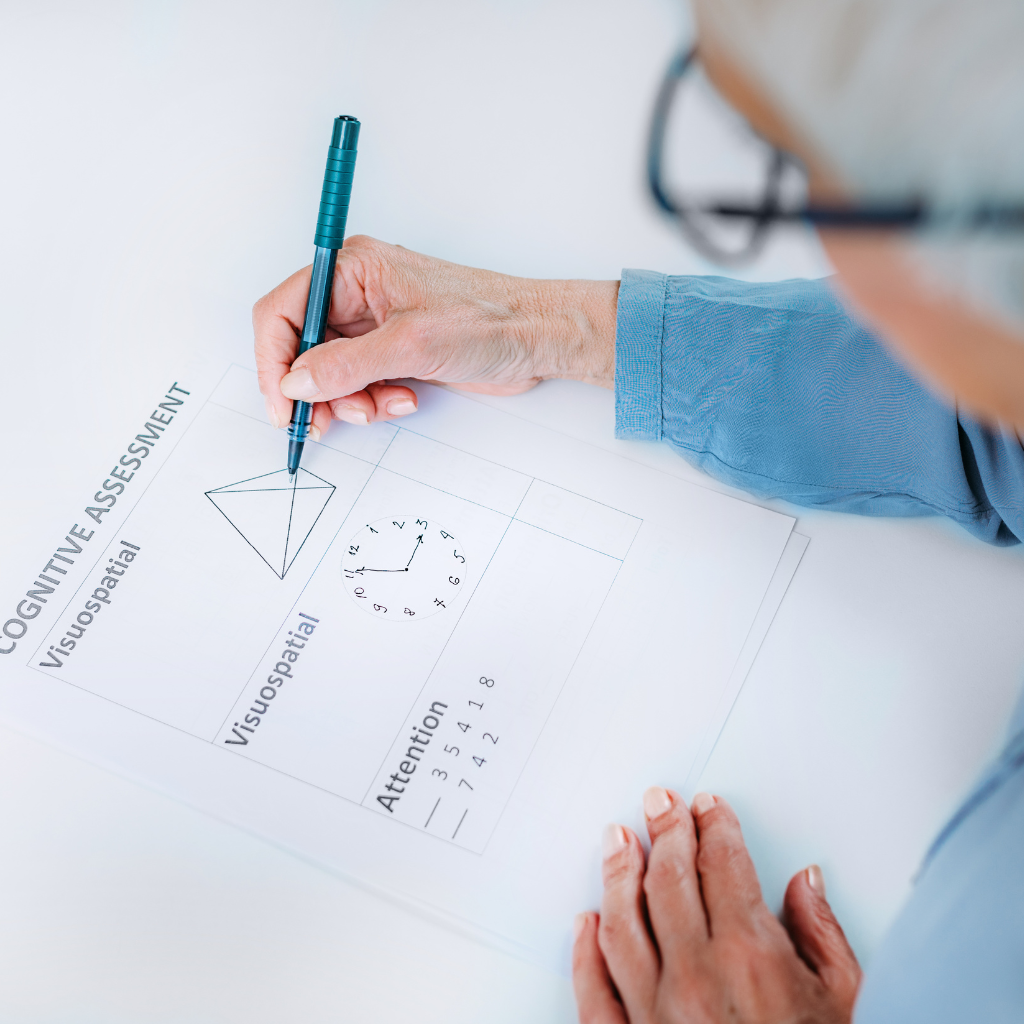Written by: Dr. Marci L. Hardy, PhD, MA
What is a cognitive assessment?
A cognitive assessment is a short, quick test that measures your brain’s functions like memory, processing speed, judgment, learning, decision-making, reasoning, thinking, understanding, language, and more. A cognitive assessment will include basic questions for you to answer and simple tasks you’ll be asked to complete to the best of your ability.

Why would I take a cognitive assessment?
If you want to know how much muscle mass or strength you have lost over time, first you need to know how much you had at a previous given point in time. Likewise, understanding how your brain is functioning requires establishing a baseline cognitive function value. Ideally, you will take a cognitive test decades before you may begin experiencing memory loss. This test result would serve as a benchmark value for your cognitive health. However, if you are concerned that you are already experiencing memory issues, you may also want to take a cognitive assessment. In addition to Alzheimer’s disease and dementia, there are many treatable conditions that can cause difficulty with memory and reasoning.

Which cognitive assessment should I take?
There are several different cognitive assessments your provider may suggest you complete, each with their own strengths and weaknesses. Some tests can be taken at home on an app or using a web-based site. Other tests require a trained professional to ask you the specific questions. The Self-Administered Gerocognitive Exam (SAGE) is one of the more common cognitive assessments you can take online, by yourself. The Montreal Cognitive Assessment (MoCA Test) is a highly sensitive cognitive assessment administered by a trained professional either using a paper or online version of the test. It evaluates short-term memory, visuospatial abilities, executive functions, attention, concentration, working memory, language, and orientation to time and place.
What will the cognitive assessment results tell me?
It is important to note that cognitive assessment results do not diagnose a given condition. Rather, a cognitive assessment helps to identify ifadditional in-depth testing is needed to look for any problems with your memory, recall, processing speed, or other causes that may be impacting your brain function. If your results are below your age-predicted score, your provider may recommend additional, more in-depth testing to rule out mild cognitive impairment or dementia. It is important to note that the results cannot diagnose a medical condition or determine how severe any memory-related medical condition may be.
How should I decide if I should take a cognitive assessment?
Whether you have a family history of Alzheimer’s disease or some other form of dementia and want to establish a baseline cognitive score or have noticed changes in your ability to remember things, a cognitive assessment may be a great tool to help you better understand your brain functions. Connect with your healthcare provider to find out which cognitive assessment they feel is the best fit for you.